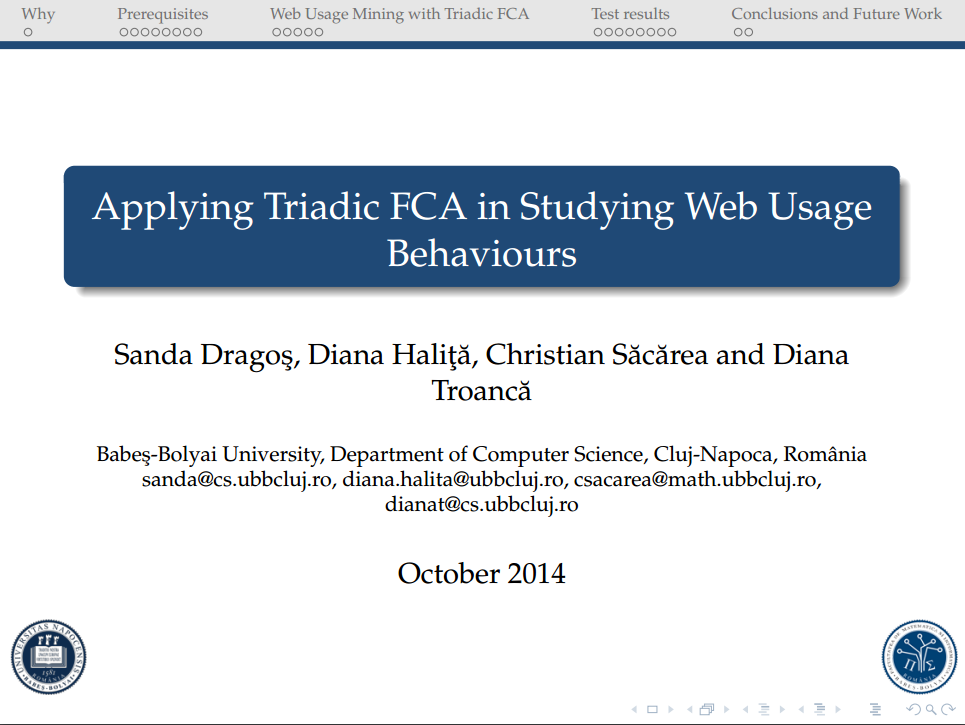Abstract:
Even if not explicitly stated, data can be often interpreted in a triadic setting in numerous scenarios of data analysis and processing. Formal Concept Analysis, as the underlying mathematical theory of Conceptual Knowledge Processing gives the possibility to explore the structure of data and to understand its structure. Representing knowledge as conceptual hierarchies becomes increasingly popular as a basis for further communication of knowledge. While in the dyadic setting there are well-known methods to reduce the complexity of data without affecting its underlying structure, these methods are missing in the triadic case. Driven by practical requirements, we discuss an extension of the classical reduction methods to the triadic case and apply them to a medium-sized oncological data set.
Keywords:
Formal Concept Analysis, Conceptual Knowledge Processing, conceptual hierarchies, classical reduction methods
An FCA grounded study of user dynamics through log exploration
Abstract:
Nowadays the use of e-learning systems is increasing, especially in academia. Most researchers use Web Usage Mining (WUM) techniques to study the behavior of users of such systems. The results thus obtained are used to enhance e-learning systems or make different predictions. Current tools used for Web Usage Mining can offer a partial view on the usage of such systems. This paper presents the use of Formal Concept Analysis (FCA) as a Web Usage Mining instrument. It is also shown how different methods of FCA can be applied for revealing user behavior patterns within a system as well as users dynamics. The detection of users dynamics is a current research topic used to reveal how a system (e-learning instrument in our case) is built. Various authors who use FCA for Web Usage Mining propose ontology generation, semantic web personalisation, but none are using the whole range of FCA tools for exploration. In this
paper, we debut by representing user dynamics patterns using ToscanaJ. Then, we use a triadic approach in order to investigate the behavioral patterns of students using the e-learning system. We also show how frequent triconcepts can be used for Web Usage Mining. Then, we use CIRCOS to represent the information content of the triadic data selection.
Keywords:
Web Usage Mining, Formal Concept Analysis, Triadic FCA.
Applying Triadic FCA in Studying Web Usage Behaviors
Abstract:
Formal Concept Analysis (FCA) is well known for its features addressing Knowledge Processing and Knowledge Representation as well as offering a reasoning support for understanding the structure of large collections of information and knowledge. This paper aims to introduce a triadic approach to the study of web usage behavior. User dynamics is captured in logs, containing a large variety of data. These logs are then studied using Triadic FCA, the knowledge content being expressed as a collection of triconcepts. Temporal aspects of web usage behavior are considered as conditions in tricontexts, being then expressed as modi in triconcepts. The gained knowledge is then visualized using CIRCOS, a software package for visualizing data and information in a circular layout. This circular layout emphasizes patterns of user dynamics.
Keywords:
Formal Concept Analysis, Knowledge Processing, Knowledge Representation, web usage behavior


